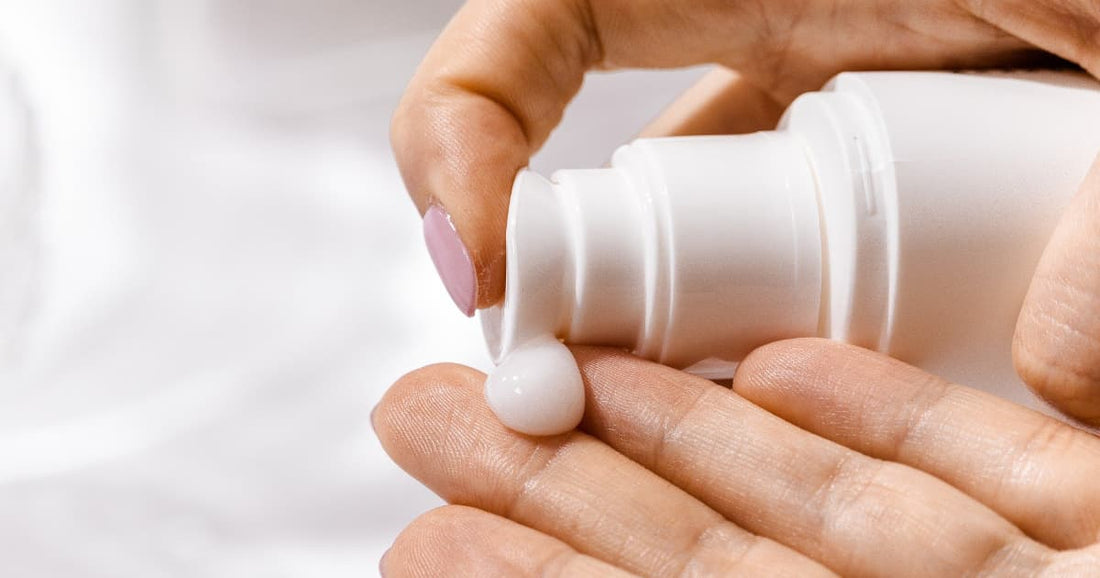
Benefits of Moisturising Your Skin Daily
Share
Hands up if you have a regular skincare routine that includes daily moisturising…
Far too often we comes across individuals who believe moisturising is something that they will get around to; something that they don’t really need until they are a little older, or perhaps when they are on holiday and want to maintain an even tan.
Well, we’re here to tell you that not only is daily moisturising essential to the overall health and wellbeing of your skin but using the right skincare products can actually improve the health and appearance of your skin. And we don’t just mean your face - we’re talking about your whole body.
Benefits of Moisturising Daily
Anti-Aging
Did you know that daily moisturising can keep your skin moist, which in turn supports the production of collagen which helps fight wrinkles? Daily moisturising is crucial in keeping the skin hydrated and plumped, both cutting back on the appearance of wrinkles and the formation of new wrinkles (which become pronounced by dry and dehydrated skin).
Maintain Your Skin’s Balance
Using the right moisturiser which is well suited to your skin will help to maintain a balance in your skin which improves its condition and reduces the chance of skin problems. This might, for example, be the reduction of blemishes and pimples through the use of an anti-acne moisturiser, or the reduction of oil through the use of a moisturiser and accompanying lotion which exfoliates your skin.

This is also where it’s important to recognise the difference between organic and natural products, with organic moisturising products protecting the skin against the effect of harmful chemicals so often found in so-called ‘natural’ products. Paying attention to packaging and the ingredient list is key.
Recover Your Skin After a Hot Shower
We all love a hot shower, but it can strip the skin of oil and moisture - and that all needs replacing once the shower comes to an end. Applying a moisturiser after your shower to your whole body will restore its hydration and ensure that the skin is protected from the sun and other daily exposures.
Repair the Skin
It’s easy to forget how often we lose skin cells through the reproduction of new ones - primarily because we don’t see it happening. A daily moisturiser routine ensures that you give the most sensitive areas of your body (your face, neck, and chest) a daily boost of moisturising and protection to help repair and keep those areas healthy. If you don’t, these areas often become exposed to the elements more regularly than the rest of your body and can suffer from over-exposure and damage.
Help Make-up Application
Make-up is far more easily applied to smooth and well-moisturised skin than it is to dry and flaky skin - that’s a fact. When you apply make-up to dry skin, the product will become stuck to and built up over dry patches and can very easily sink into wrinkles and lines in your complexion - instantly ageing your face and making your skin appear much dryer than it really is.
We recommend moisturising around 5-10 minutes before make-up application, to give the product chance to sink into your skin and plump it up ready for your foundation and other products. You can also user a primer as an in-between layer if you want to create an even smoother base layer for your make-up.
Things to Consider Within Your Daily Moisturising Routine
Once you commit to moisturising on a daily basis, there are a few things to consider with your routine, including:
• Using an SPF moisturiser in the summer months particularly, and all year round on your face to protect the skin from UV rays and harmful exposure.
• Selecting the right skincare products for your skin type - with a focus on organic products that are made using organically farmed ingredients.
• Remember that not all moisturising products are labelled as moisturisers on the shelves. Some of the best moisturisers are labelled as gels, lotions, and creams - and should be selected based on their merit against your individual needs and your skin type.
• Use your hands to apply moisturiser so that you can be sure not to miss any spots.
• Applying moisturiser to damp skin allows it to sink into the skin far more effectively, leaving you with softer and more hydrated skin. This also plays into the ‘less is more’ ideology, because applying moisturiser to damp skin allows every stroke of product to go further.
